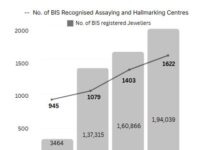As we mark World Heart Day this year, the theme “Use Heart for Action” resonates more than ever, inspiring individuals, communities, and organizations worldwide to take proactive steps toward better cardiovascular health. With heart disease remaining the leading cause of death globally, this initiative calls for a concerted effort to raise awareness, embrace healthier lifestyles, and advocate for cardiovascular health for all, commented Prof Dr. Rajesh Vijayvergiya, from PGI, Chandigarh
While giving insights about the burden of various cardiovascular diseases, Prof Vijayvergiya shared that according to the World Health Organization (WHO), an estimated 17.9 million people die from cardiovascular diseases each year, accounting for 1/3rd of all global deaths. Alarmingly, lifestyle-related risk factors such as poor diet, physical inactivity, tobacco use, and excessive alcohol consumption significantly contribute to all these challenges.
Prof Vijayvergiya shared that about 80% of premature heart disease and stroke can be prevented through lifestyle and risk factor modifications at community levels. Every small step counts—choosing to walk instead of driving, incorporating more fruits and vegetables into meals, and participating in heart health programs. He emphasized that to protect the heart, one should control various risk factors for heart disease, such as smoking, obesity, lack of physical activity/exercise, unhealthy diets, psychological stress, treatment of hypertension, diabetes, and abnormal cholesterol. The cardiac risk can be substantially decreased by adopting healthy lifestyles, including regular physical activity, taking less salt in the diet, regularising sleep, and minimizing psychological stress.
Actions to be taken for the prevention of heart disease.
Have a healthy food style. Increase uptake of vegetables (>200gm), fruits (>200gm), cereals and fibres (> 20gm/d) in daily diet. Salt intake should be < 5 g/d. Food containing high saturated fats like red meat, dairy products, coconut and palm oils; and high trans-fat contents like deep-fried fast foods, bakery products, packaged snack foods, and margarine should be avoided.
All healthy adults should exercise 30 – 45 minutes daily, at least five days a week, for moderate to vigorous exercise. Counting more than 8,000 steps per day has also helped reduce the risk of heart attacks.
Treatment of abnormal lipids by exercise, weight reduction and drugs.
Stop smoking and chewing tobacco.
Have the blood pressure <140/90 mmHg. Those with diabetes and renal failure should have strict control of blood pressure. Low salt intake, appropriate body weight maintenance and medications control high blood pressure.
Have the fasting blood sugar <110 mg%. Control of blood sugar can be done with diet modification, appropriate body weight maintenance and drugs.
Be physically active. Have a Body Mass Index (BMI) of <25 Kg/m2. The ideal weight can be calculated by height in cm – 100. When indicated, body weight reduction can be achieved by an appropriate balance of physical activity, caloric intake, and formal behavioural programs.
Yoga, exercise, changing the workplace environment, and psychological counselling can modify psychological stress at home and at work place.
One should have at least 7 hours of uninterrupted nighttime sleep.
Compliance with the drugs prescribed by the physician for heart disease. Medications like aspirin and statin should not be taken without physician advice.














